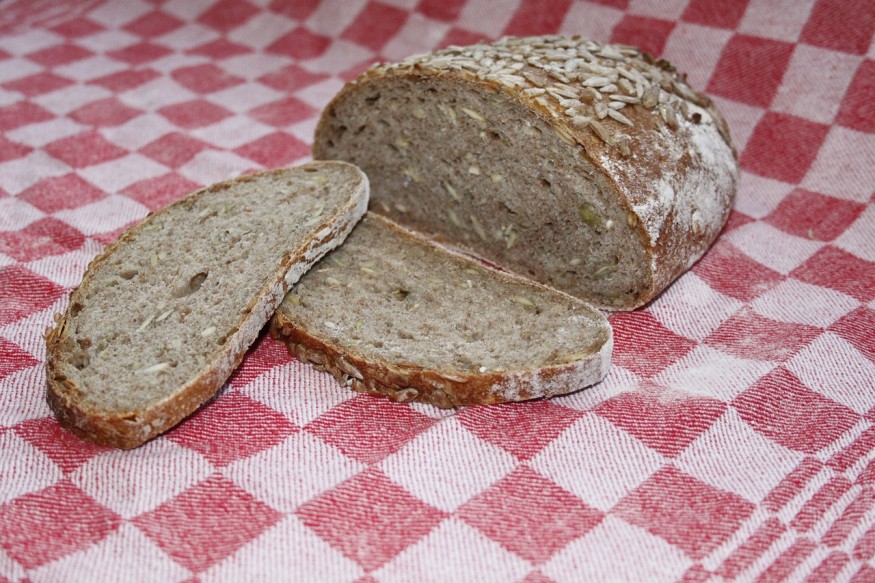
Sourdough bread, tracing its roots back to Ancient Egypt over 5,000 years ago, stands as a testament to ancient culinary wisdom and modern health consciousness. Known as one of the earliest forms of leavened bread, sourdough's traditional preparation involves naturally occurring yeasts and lactic acid bacteria, distinguishing it from commercially leavened counterparts.
Aside from being an important piece of history, sourdough boasts of several health benefits, including the ones listed below.
Easy Digestion
Some people feel better after eating sourdough bread compared to store-bought bread. This is because sourdough fermentation makes its proteins easier to digest and breaks down gluten, which can be difficult for some people to digest, found in grains like wheat, barley, and rye.
While not everyone struggles with gluten, those with gluten-related disorders like celiac disease and non-celiac gluten sensitivity (NCGS) often experience digestive discomfort after consuming gluten-containing foods.
Research has found that sourdough contains lower levels of gluten and other compounds known to cause digestive issues, including Fermentable Oligo-, Di-, Mono-saccharides, And Polyols (FODMAPs), and anti-nutritional factors such as phytates, tannins, and trypsin inhibitors, commonly associated with digestive symptoms like bloating and discomfort, particularly in individuals with irritable bowel syndrome (IBS).
This suggests that sourdough might be gentler on the digestive system and lead to fewer gastrointestinal discomforts compared to commercially leavened bread.
A review of 25 studies conducted in 2023 found that people reported feeling more comfortable after consuming sourdough bread compared to bread made with baker's yeast.
Easy Nutrient Absorption
Certain substances, like phytates, tannins, and trypsin inhibitors, can make it difficult for our bodies to take in nutrients from food.
For instance, phytates in foods like grains and legumes attach to minerals such as magnesium, calcium, and iron, preventing their absorption in the gut.
However, the fermentation process used in making sourdough bread breaks down these substances like phytates. Research suggests that some sourdough recipes can reduce over 96% of the phytic acid present in the dough.
Health.com noted that components in sourdough, like phytate-breaking enzymes and lactic acid bacteria, decrease these substances, enhancing the availability and absorption of certain nutrients like iron, calcium, magnesium, and zinc in the bread.
Better Blood Sugar Management
Compared to regular bread, sourdough has a milder effect on blood sugar levels and ranks lower on the glycemic index (GI) than bread like white bread. The GI rates carbohydrate-rich foods on a scale of 0-100 based on how they affect blood sugar. Lower-GI foods are below 55, moderate-GI foods are between 56-69, and high-GI foods are over 70.
The fermentation process in sourdough produces organic acids like lactic and acetic acid, which slow down starch absorption in the gut, leading to a slower increase in blood sugar.
Research shows that sourdough bread has a lower GI than bread made with baker's yeast. For instance, white wheat bread has a GI of 71, considered high, while sourdough bread has a GI of 54, considered low. This suggests sourdough might be a better choice for managing blood sugar compared to yeast bread.
A study in 2023 involving women with gestational diabetes found that after eating refined white bread, they had higher insulin levels and blood sugar compared to when they ate the same amount of whole grain sourdough bread.
A review in 2022 of 18 studies concluded that sourdough, especially whole wheat sourdough, has less impact on blood sugar levels than other bread types, like refined white bread. This indicates that replacing common breads with sourdough, such as white sandwich bread, could support better blood sugar control.
However, despite its array of health merits, sourdough is not without considerations. Individuals with celiac disease or gluten sensitivities should opt for gluten-free alternatives, as sourdough retains gluten, albeit in reduced amounts compared to conventional wheat bread. Moreover, those adhering to very-low-carb diets, such as keto, may find sourdough's carbohydrate content incompatible with their dietary goals.
